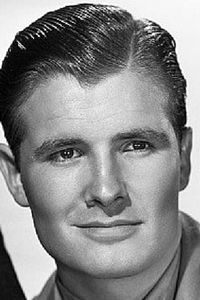James Corner, a dark-haired and boyishly handsome individual, embarked on a brief yet remarkable acting career on both stage and screen before his life was tragically cut short while serving his country in World War II.
Born James Walker Corner on April 30, 1915, in Platteville, Wisconsin, to an upper-class family with a machinery executive father, Douglas Corner, and a socialite mother, May Walker Corner. The family relocated to Joplin, Missouri, when James was just an infant.
During his college years at Stanford University in Southern California, James discovered his passion for acting, appearing in various local and school plays, including "Yellow Jack" (1935),"Paths of Glory," "Three Sheets to the Wind," "Roadside," "1936 Big Game Gaieties," "This Side Idolatry," and "Lady Precious Stream" all in 1936.
After graduating, James returned East and performed in stock in the Connecticut area, where he was eventually discovered by producer/director George Abbott. He earned a role in the London company of the hit comedy "Room Service," before returning to the States and building his reputation with roles in the Broadway shows "What a Life" (1938) and "Run, Sheep, Run" (1938).
When Paramount decided to film a version of the Broadway hit "What a Life," James and Betty Field were brought in to repeat their stage roles. James received positive reviews for his performance in "What a Life" (1939) and was given a second role in "Winter Carnival" (1939),which was released first.
James returned to Broadway to perform in "Ring Two" (1939) and "Out from Under" and took on a few TV roles in 1940. He was subsequently signed for his third movie role, "Scattergood Pulls the Strings" (1941),opposite lovely and demure Susan Peters.
However, World War II intervened, and James dutifully enlisted with the 102nd Infantry Division, 9th Army in 1942, eventually earning the rank of Captain. In November 1944, he earned distinction when, as a scout, he surprised a German troop and captured a number of prisoners. Tragically, the 29-year-old was killed in action just weeks later, on December 2, 1944, and was buried in a military cemetery in the Netherlands.
















